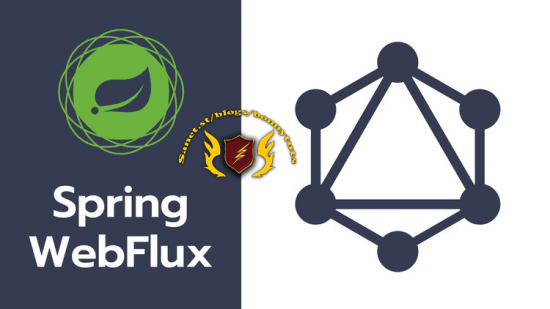
Published 08/2022
MP4 | Video: h264, 1280×720 | Audio: AAC, 44.1 KHz, 2 Ch
Genre: eLearning | Language: English | Duration: 175 lectures (12h 28m) | Size: 4.77 GB
Spring Reactive Course Series – Part 6
What you’ll learn
Learn GraphQL From Scratch & Become Super Confident With GraphQL
Expose your Microservice APIs via GraphQL for the clients to consume in a more efficient way
How to write Integration Tests for your APIs
A lots of hands on!!
Requirements
Knowledge on Spring WebFlux
Comfortable with Indian Accent
Description
This is the 6th course in the Reactive Course Series. Spring WebFlux is a reactive non-blocking web stack which scales better & provides better performance compared to traditional Spring Web MVC!
In this course, we learn GraphQL From Scratch with Spring WebFlux to build Reactive Microservices.
By the end of this course you would be comfortable with
GraphQL Query
How GraphQL works behind the scenes
Exposing APIs & Passing Arguments
Sequential vs Parallel execution of the APIs
Type System – various GraphQL types and how to create your own types
Scalars / Objects
Interface / Union – For better API design
Schema Design – How to create types for your application and expose your APIs
N + 1 Problem and Possible solutions
How To Structure GraphQL Queries
Various GraphQL Clients – How to call your GraphQL APIs
Field Alias to change the response labels
Fragments for better reuse in the GraphQL Query Document
Operation Names for better debugging
Directives @Include / @Skip / @Deprecated for conditionally executing the APIs
Advanced Concepts
Custom Data Fetcher – How to create your own data resolver for fetching the data more efficiently.
Data Fetching Selection Set – How to access various fields from the request
Operation Caching – to speed up the GraphQL engine execution by caching the parsed document.
CRUD Applications With GraphQL
Integration with Database to create a CRUD application and learn how GraphQL Mutation works.
Subscription
Let’s learn how GraphQL Subscription works for a long running stream of responses using WebFlux WebSocket.
How to emit events for the clients to consume.
Input Validation / Error Handling
How we could do input validation and communicate the error messages to the client. There are few techniques like GraphQL Error object, Using Union types etc. We will be exploring all the options.
How we could intercept the incoming requests, access HTTP headers and pass them to the GraphQL controller / APIs and take appropriate actions.
Integration Tests
How to write integration tests for your GraphQL API and do the assertion using JSON Path. This covers Query / Mutation and Subscription type APIs.
Who this course is for
Any Java / Spring Developer
Password/解压密码www.tbtos.com
转载请注明:0daytown » GraphQL With Spring WebFlux